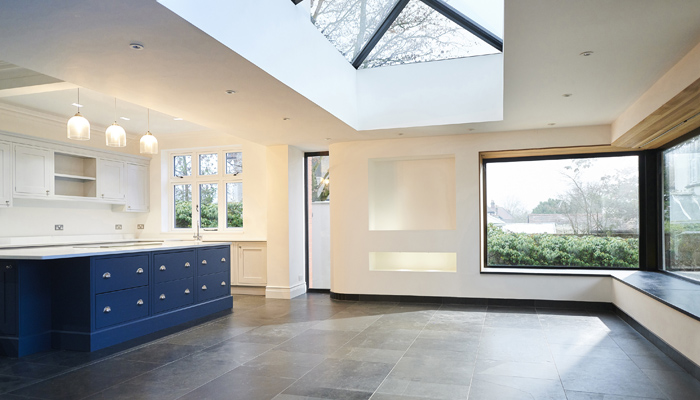Buying a Holiday Home
Why do you want to buy a holiday home?
If you’re thinking of investing in a second property it can be tough to know where to start. Not only do you want to find the perfect building and setting but accessibility and other concerns such as future value will also come under scrutiny. Our guide will help you get your head around these choices and provide a basis for when you’re shopping around.
Your reasons for buying a holiday home or second home will have a great impact on your choice of location and property.
Many people want a second home to be 'mixed-use' i.e. they'd like to get a bit of rental income, but also use it for themselves and their friends and family. Of course if the value increases with time, this is also a bonus!
It can be difficult to find all of these elements in equal measures, so you will need to decide what is most important to you - it will make the process much simpler.
Buying a holiday home for investment
If you are looking for a rental investment, you might have different priorities than if you are just looking for a retreat for your own use. If gaining capital is your main interest, then it's likely you will choose a different destination than if it were for a retirement pad.
Where is the best place to buy a holiday home?
Your choice ultimately depends on what you want from the property, but being fond of and familiar with the area certainly helps!
Access is one of the most important factors when considering where to buy a second home. If you want somewhere to escape at weekends, it might be a bad idea to buy in Australia. Devon, however might be more manageable! Look into transportation services to the area, think about the road and rail systems and whether low cost airlines operate in the area.
Where you buy will depend on what kind of surroundings you are looking for, consider the nightlife, food, scenery and so forth. And don't forget the weather - some places have good weather all year round, but some have low seasons where the shops and restaurants close down.
A technique to use is to narrow your search area by looking at "ever decreasing circles". Once you've decided on the country, you can begin to decide on the region, then the town, until you can pinpoint the specific location and concentrate your search there.
Buying a holiday home abroad
Brits’ ten most popular foreign holiday home destinations are spread across mainland Europe and Turkey, with Spain comfortably taking the top spot. Sunny climes and cervezas by the sea have their charms, but if you’re buying abroad, take extra care over hidden costs and consider asking a professional to help steer you through the process.
What should you look for when considering a holiday home?
Write up a list of criteria that the property you are looking for should include. Is a garden essential? Do you need a garage? How many bedrooms? Do you want an apartment or house? Make sure you are clear on which items are non-negotiable and which you'd be willing to compromise on.
Also, think about the style of property. You might like the idea of a stone-built rural farmhouse, but will it provide you with the rental income you desire? Perhaps the maintenance will be unmanageable?
When is the best time to buy a holiday home?
You can spend months looking at market conditions and predictions for maximising capital growth, but first and foremost, it has to be the right time for you. You might spend years waiting for the 'right time' to buy, and then realise you've missed the boat.
Many people either avoid buying in a downturn because of the uncertainty of their investment, or simply can't arrange the finance, but often the most competitively priced properties can be found at such times.
It sounds obvious but historical data shows that properties bought at the bottom of the market make the most profit, so in a buyers market you have room to negotiate.
What are the next steps in buying a holiday home?
So you've decided why, where, what and when but what about how?
For a major purchase like this you'll have to do a considerable amount of planning and budgeting in advance and research the options open to you.
If you have ready cash, then speak to a currency expert who will be able to advise you on the getting the best deal at the best time.
If you're looking at a mortgage, think about whether you need a UK or international mortgage and the implications of this on your income and currency exchange rates. so that you know how much you have realistically got to spend, and can make you a more attractive buyer.
In all cases it is vital to speak to a legal adviser who can work in your best interests, and you can relax in the knowledge that you'll soon have a wonderful second home.
Holiday home insurance from Towergate
Make sure once you have completed the purchase of your property that you arrange the relevant insurance. Towergate Insurance offer quality holiday home insurance for properties in both the UK and overseas.
Is a holiday home a good investment?
A holiday home can be a fantastic investment so long as you manage your property well and ensure it sees plenty of use.
A report from Second Estates found that the average UK holiday home owner earns £22,281 a year from letting out their property, but that can be even higher if you own a second home in a popular holiday destination abroad.
The most profitable holiday home owners treat their property as a real business. You need to market your home, attend to your guests, and keep the property clean and comfortable.
There are hidden costs involved, though. If you use an agency to manage your holiday let, they will take a cut of the profits. You’ll also want to keep some cash aside for damages and repair, and factor in the cost of travel and taxes before you commit to buying.
If you’re buying a holiday home for personal use, the financial reward might not be your number one concern. Make sure you consider factors like taxes, travel costs and resale value, but – most importantly – settle on a property that you love to visit.
Can you live in a holiday home all year round?
UK law does not permit you to live in your holiday home for 12 months at a time. You need to decide what your permanent address is for council tax reasons. Your council tax is lower on a secondary residence, so you could be a burden on local services if you were living in a holiday home all year.
Holiday home finance and tax
The financial side of owning a holiday home can be complicated and depends on what you plan to do with the property. If you’re using it for your own enjoyment, there’ll be fewer financial implications, but there’s plenty of help out there if you’re running the place as a business.
Can you get a mortgage on a holiday home?
- If you don’t plan on letting the property out (or only expect to do so occasionally), a second home mortgage might be best for you. Beware, though, that you will need a large deposit – typically 35%.
- If buying abroad, you can either get your loan from a UK bank if they have a presence in the destination country, or through a local lender.
- If your holiday home is a business, you will need a holiday home mortgage. These aren’t available at most high street banks, and are instead offered by some specialist building societies. Lenders will expect proof that you can make a gross income of 125-130% of your mortgage payment, so you need to do some research on the local lettings market to know whether that’s realistic.
- There are strict rules about buy-to-let mortgages, meaning they aren’t always appropriate for holiday lets.
Tax on holiday lets
As well as the usual council tax and stamp duty, holiday lettings are also subject to capital gains tax, although there is some tax relief on holiday rental properties.
Holiday let tax relief
The good news is that a furnished holiday let is a specific rental property classification and offers you certain tax advantages. The interest on your mortgage will be an acceptable tax deduction, and there are allowances for utilities, furnishings and insurance.
What are the hidden costs of buying a holiday home?
When searching for your dream home away from home, you may not spend much time thinking about the ongoing costs of maintaining a holiday home. However, it's important to factor in these costs, as they can add up quickly.
The cost of keeping your holiday home well maintained
While your holiday home insurance will most likely cover mishaps leading to accidental damage, wear and tear will not be covered. This means that if you do want your home to be kept in pristine condition and it is being used lots, you'll need to consider the cost of fresh coats of paint and deep cleaning, from time-to-time.
Holiday home security tips
Any property that is less frequented than a primary home has a higher risk of burglary. This is one of the reasons why a standard home that is empty for more than 30 days will usually require unoccupied property insurance.
Renting out your property can help to reduce this risk, but comes with other risks such as key management, burglars being able to easily scout out the coming and going of guests. With this in mind, it' extra important to take precautionary security measures when it comes to your holiday home. To avoid being unable make a successful claim in the event that the worst doe happen, make sure that you understand the ins and outs of your holiday home insurance policy - and if you're unsure about anything, speak to an adviser.
Ten Tips to deter burglars from your holiday home
- Keep your garden well maintained
- Install timer switches outside your front door and any paths leading up to the house - this will put off anyone from snooping around at night
- Ask a neighbour to remove any mail
- Consider installing a safe somewhere concealed within the property
- Make sure all window and doors feature suitable locking mechanisms
- Consider installing a smart lock on your front door to reduce to risk of keys going astray and falling into the wrong hands
- Consider installing an alarm system
- Installing a motion detector inside the house to alert you to any movement at unexpected times
- Use smart lights or timer activated lights to give the illusion that someone is inhabiting the house even when it's empty
- Don't leave any spare keys hidden outside the property
Gardening advice for your holiday home
When visiting a prospective holiday home, you may be drawn in by a wonderful mature garden or a swimming pool, but it's important not to forget about the large ongoing costs that accompany these amenities. Swimming pools, for example, are notoriously expensive to maintain. However, if you're renting out your holiday home, the premium people will pay for a pretty garden or pool may negate these ongoing costs.
Depending on the plants and terrain, you may wish to hire a gardener to maintain your garden weekly, fortnightly or even only monthly.
Swimming pool maintenance costs
If your holiday home features a swimming pool, these can come with fairly hefty maintenance fees that you'll need to factor in, including:
- Filter pump running costs
- Heating costs, if you're opting for a heated pool
- Water costs
- Chemical maintenance costs
The costs of renting out your holiday home
If you're planning to rent out your holiday home, this will inevitably lead to more maintenance costs than you'd experience otherwise - but on the other hand, can result in a win-win situation in which your rental income covers overall maintenance costs - and more.
If you'd rather outsource the management of renting out your holiday home to an property management agency, you'll need to factor in these costs too.
How much commission should you pay a holiday letting agent?
This can vary considerably depending on where you holiday home is, but it is not uncommon for a holiday letting agent to take up to 25% from each rental.
Although this may seem a large chunk of your income, once you've factored in the convenience and a (hopefully) guaranteed good service, you may find that this extra expense is worthwhile in the long term, as it'll free up your time and should result in better guest satisfaction and therefore more bookings!
Holiday home rental cleaning costs
Another factor to consider is the cost of keeping your home clean and tidy. If you're unable to clean and tidy your holiday home after each stay, you'll need to employ someone else to do the job. These costs will vary by location and it's important to factor them in when setting rental rates and forecasting the profit you'll make from renting out your holiday home. Many short-stay rental platforms, such as Airbnb or Homestay allow you to pass these costs directly to the guest.
About the author
James Cooper is a respected industry leader with over 10 years' experience in the home and property insurance sector. He works across a broad range of insurance product and policy development and delivery, including product development; customer sales and marketing; and P&L accountability.
Date: April 04, 2019
Category: Home and Property







